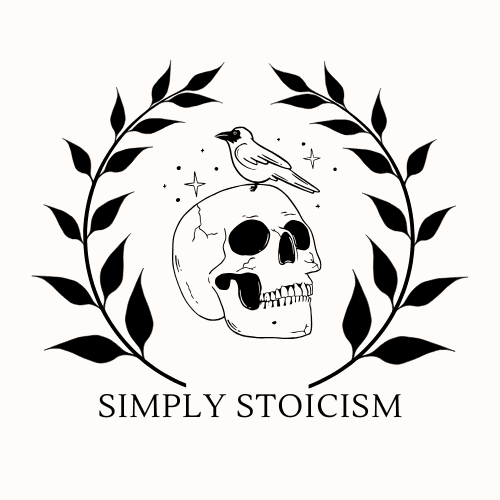Forget Hustle Culture: Why Stoicism Teaches Us to Do Less, but Better
Discover how Stoic philosophy offers a refreshing alternative to toxic hustle culture. Learn practical ways to do less, but better and focus on what truly matters.

Jon High
·
Dec 20, 2024
In a world that glorifies the grind, celebrates 80-hour workweeks, and turns "busy" into a status symbol, an ancient philosophy offers a radical alternative: do less, but do it better. The Stoics, those pragmatic philosophers of ancient Rome and Greece, would look at our modern hustle culture with a mixture of bewilderment and concern. Not because they didn't value hard work—they did—but because they understood something we seem to have forgotten: the quality of our actions matters far more than their quantity.
The Illusion of Constant Motion
Picture this: You're checking emails while on a Zoom call, scheduling social media posts between meetings, and squeezing in a quick workout video during lunch. Your to-do list grows faster than you can check items off, and "inbox zero" feels like a distant dream. Sound familiar?
This is the reality of hustle culture—a mindset that equates constant motion with progress and busyness with worth. But here's what the Stoics would ask: In all this movement, are you actually going anywhere meaningful?
The Stoic Alternative: Purposeful Action
Marcus Aurelius, the philosopher-emperor, wrote in his Meditations: "Do less, better." These three words capture the essence of the Stoic approach to productivity and purpose. But what does this actually mean in practice?
1. Quality Over Quantity
The Stoics believed that every action should serve a clear purpose. Instead of spreading yourself thin across countless tasks, focus your energy on what truly matters. Ask yourself:
Is this task aligned with my values?
Will this action contribute to my long-term goals?
Am I doing this for show, or does it serve a genuine purpose?
2. The Power of Presence
Seneca, another prominent Stoic, warned against the danger of living for tomorrow at the expense of today. When we're caught in the hustle mentality, we're always chasing the next thing, never fully present in the current moment. The Stoic approach advocates for:
Full engagement in the task at hand
Mindful attention to your current work
Appreciation for the process, not just the outcome
3. Strategic Elimination
Epictetus taught that true freedom comes not from acquiring more, but from wanting less. In our modern context, this means:
Deliberately choosing what not to do
Saying no to opportunities that don't align with your core purpose
Eliminating unnecessary commitments and distractions
Practical Steps to Do Less, Better
Morning Reflection
Start each day by identifying your most important task
Ask yourself: "If I could only accomplish one thing today, what should it be?"
Focus your best energy on this priority
Strategic Pauses
Build regular breaks into your schedule
Use these moments for reflection and course correction
Practice the Stoic exercise of negative visualization to maintain perspective
Intentional Elimination
Regularly audit your commitments and activities
Remove tasks that don't contribute meaningful value
Create space for deep work and genuine rest
The Results of Doing Less
When you embrace the Stoic approach of doing less but better, several positive changes emerge:
Improved Quality
Your work becomes more thoughtful and refined
You make fewer mistakes that require fixing
Your output has greater impact
Mental Clarity
Reduced mental clutter leads to better decision-making
You experience less anxiety and overwhelm
Your focus sharpens naturally
Deeper Satisfaction
Work becomes more meaningful and purposeful
You feel proud of what you produce
Life feels more balanced and sustainable
The Courage to Be Different
Adopting this approach requires courage. In a world that celebrates constant motion, choosing to do less can feel counterintuitive, even scary. But remember what Marcus Aurelius said: "Very little is needed to make a happy life; it is all within yourself, in your way of thinking."
The Path Forward
The choice between hustle culture and Stoic intentionality is yours to make. But consider this: Years from now, will you look back and wish you had done more things poorly, or fewer things well?
The Stoics would argue that a life well-lived isn't measured by the length of your to-do list or the number of hours you work. It's measured by the quality of your actions, the depth of your relationships, and the impact of your chosen work.
So perhaps it's time to stop celebrating busyness for its own sake. Instead, let's embrace the ancient wisdom that less, done better, is actually more.
Remember: The goal isn't to do everything—it's to do the right things, excellently.



